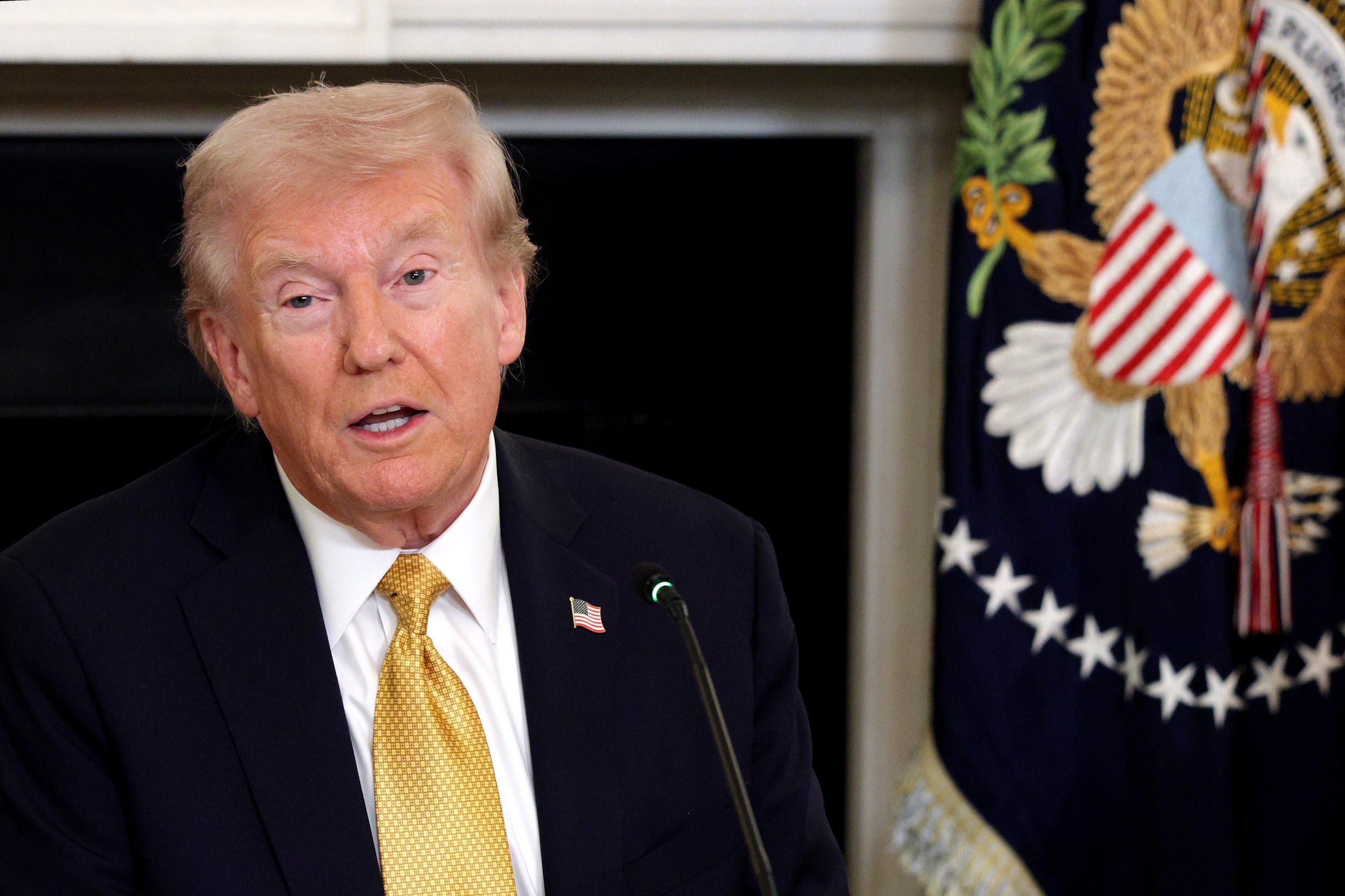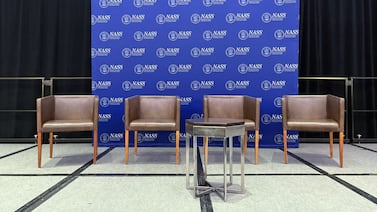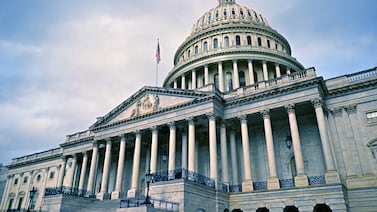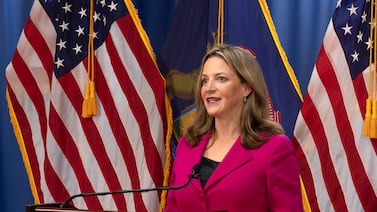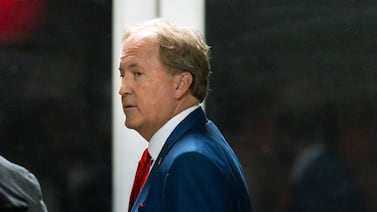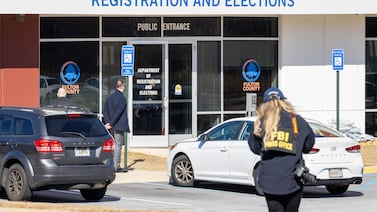Votebeat is a nonprofit news organization reporting on voting access and election administration across the U.S. Sign up for our free weekly newsletter to get the latest.
What happened?
A federal judge Friday permanently blocked a key provision of the sweeping executive order on elections President Donald Trump issued in March.
The ruling, from Judge Colleen Kollar-Kotelly, blocks his direction to the U.S. Election Assistance Commission to take steps to require documentary proof of citizenship from people registering to vote.
“Because our Constitution assigns responsibility for election regulation to the States and to Congress, this Court holds that the President lacks the authority to direct such changes,” Kollar-Kotelly wrote.
What’s the dispute?
Multiple nonprofit groups and Democratic Party committees sued Trump, the EAC, and other federal agencies over the order he signed in March calling for broad changes in how elections are administered. The plaintiffs argue that the Constitution does not grant the president authority to set rules for elections.
The lawsuits challenge multiple provisions of the executive order, including one that directs the EAC to add a documentary proof-of-citizenship requirement to the federal voter registration form; another requiring the agency to withhold federal funds from states that don’t comply with its requirements; and one prohibiting states from accepting mail ballots postmarked before Election Day, but received afterwards.
The Justice Department argued the order is legal under existing federal laws.
Kollar-Kotelly in April issued a preliminary injunction halting some provisions of executive order, including this provision. Her order Friday made that permanent.
Who are the plaintiffs?
Two of the lawsuits were filed by a collection of nonprofit groups, including the League of United Latin American Citizens, the League of Women Voters, the NAACP, and others. Another was filed on behalf of Democratic national party committees and leadership. Additional lawsuits challenging provisions in the executive order are pending in other federal courts, including one by Democratic attorneys general in 19 states and another by the states of Oregon and Washington. A second federal judge also issued a preliminary injunction in June in the case filed by Democratic attorneys general.
The lawsuits by the Democratic and nonprofit groups were filed in U.S. District Court in Washington, D.C., and assigned to Kollar-Kotelly, who consolidated them. Kollar-Kotelly was nominated in 1997 by former President Bill Clinton.
What are they asking for?
The lawsuits asked the judge to stop the government from implementing or enforcing the provisions of the executive order under challenge, and, ultimately, to find them unconstitutional.
What happens now?
Kollar-Kotelly has yet to rule on challenges to additional provisions, and the remaining lawsuits in connection with the executive order are still pending. The Justice Department did not immediately respond Friday to a request for comment on the ruling, which could be appealed.
Read more Votebeat coverage of the challenges to Trump’s executive order on regulating elections:
- Trump’s executive order on elections is partly blocked by federal court, April 24, 2025
- Judge hears challenges to Trump’s executive order on regulating elections, April 17, 2025
- With Trump’s executive order, thousands of military voters could see their rights curtailed, April 10, 2025
- First lawsuits against Trump’s election order cite text of Constitution, April 7, 2025
- Democratic attorneys general sue Trump over elections executive order, April 3, 2025
- New Trump order targets barcodes on ballots. Why? And what will that mean? March 28, 2025
- Trump orders an overhaul of how elections are run, inviting a likely legal challenge, March 25, 2025
Carrie Levine is Votebeat’s editor-in-chief and is based in Washington, D.C. Contact Carrie at clevine@votebeat.org.

